mind maps
Individual behaviour, induced by a policy intervention, often affects future actions in an unintended way – that’s the case of behavioural spillovers
But can the opposite hold true as well? Can the future influence the behavioural choices we make today?

1 What is behavioural spillunder?
As you might have guessed, behavioural spillunder and spillover are closely related.
➤ For an introduction on spillover, click here |
Initially, the aim is to positively change a behaviour with a policy intervention.
Both types of “spills” essentially describe unintended ripple effects the intervention has on other behaviours.
What makes spillunder different though?
In short: the time sequence.
We start out with an Intervention (I) targeted at a Behaviour (B1) that will be undertaken some time in the future (at time t1).
Only this time, the intervention will spill onto a different Behaviour (B0) that precedes the targeted behaviour (at time t0).
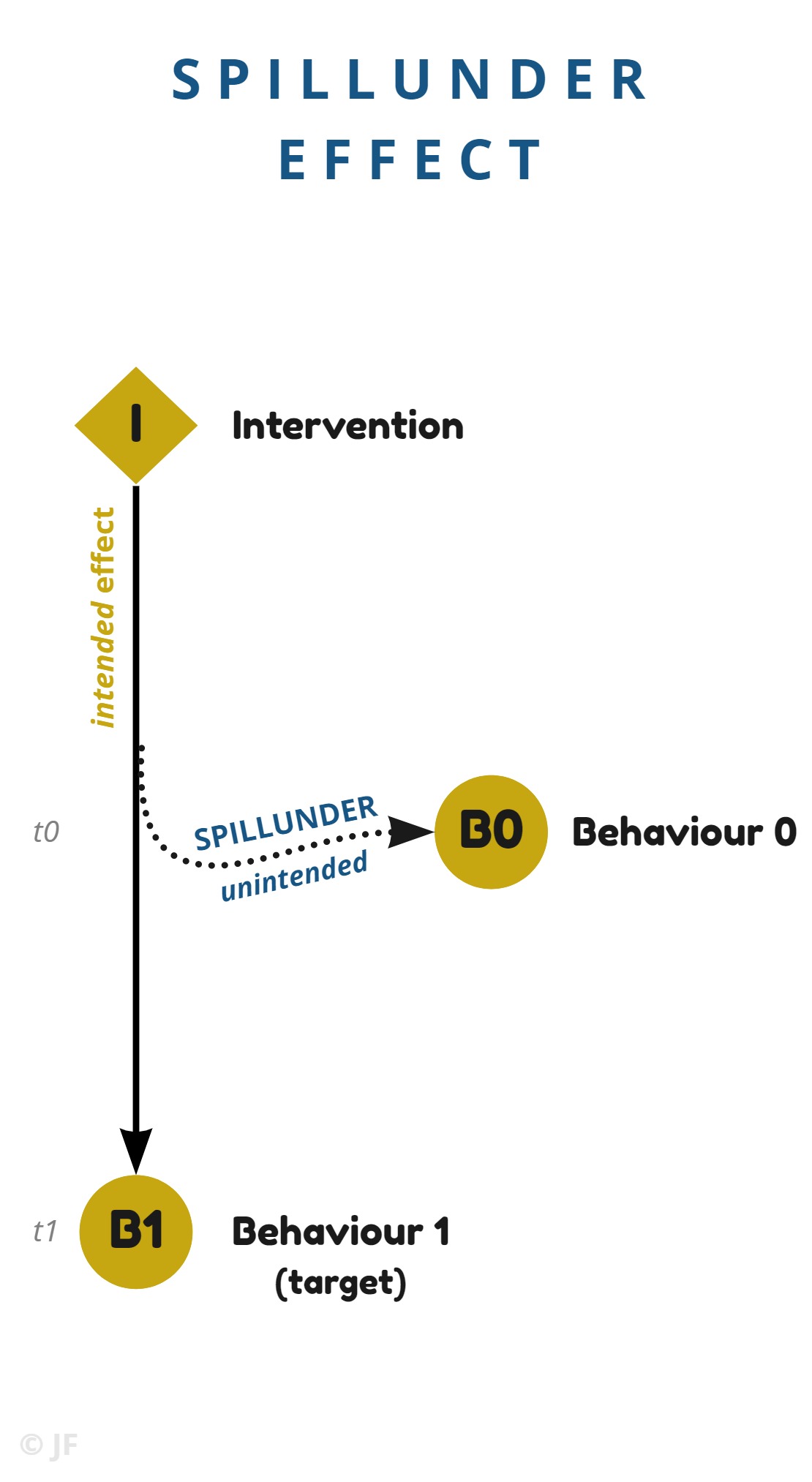
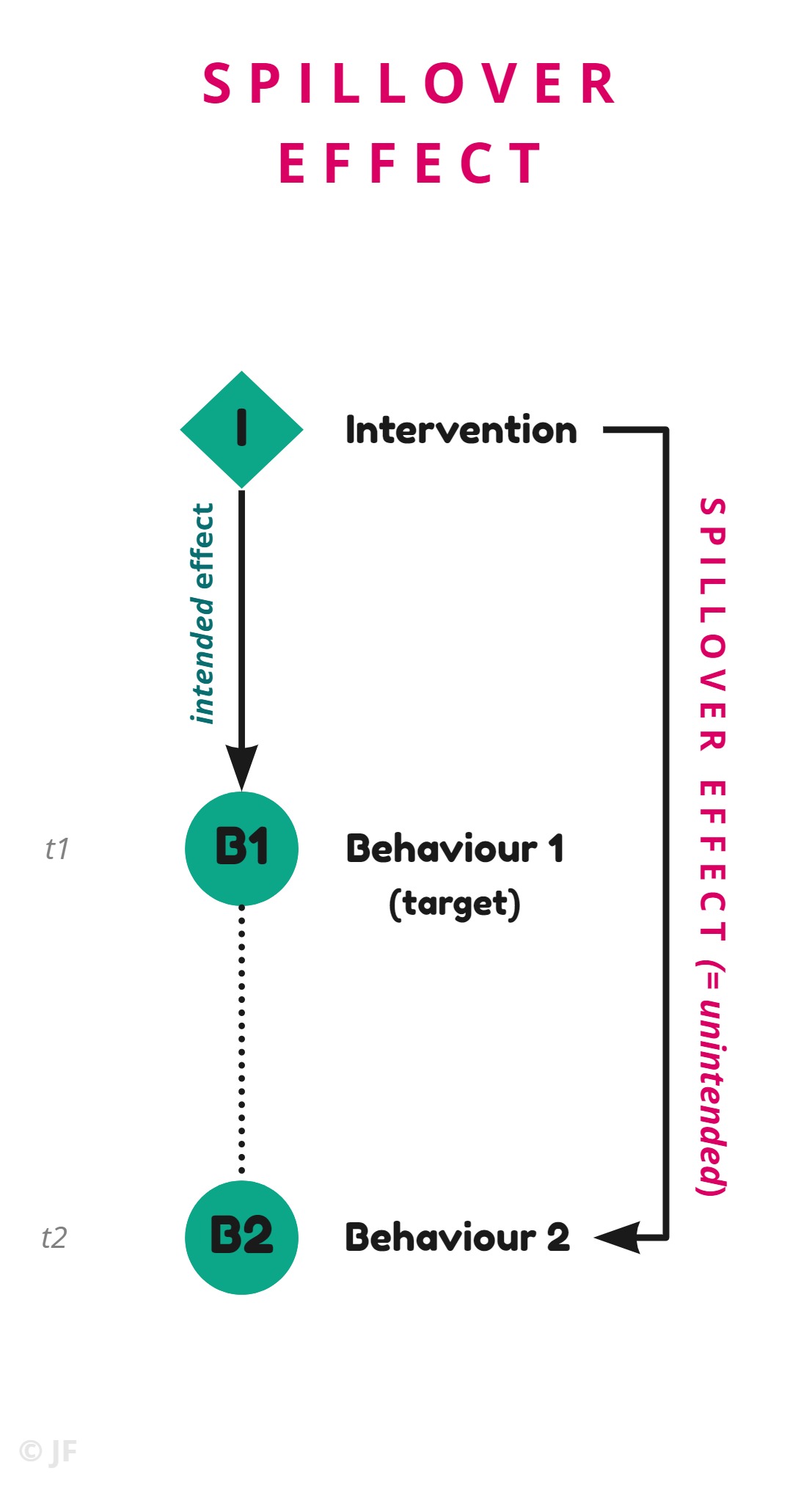
In simple terms:➤ spillover occurs when “what you do now affects what you do in the future“➤ spillunder occurs when “what you do in the future affects what you do now“ |
2 How does the future affect the present?
The key to understanding spillunders is ‘ANTICIPATION’. It is not so much the behaviour (B1) in itself that matters, but the anticipation [expectation] or intention associated with that future behaviour.
The prospect of a future action has an influence on your present actions, irrespective of whether that future action will eventually be executed or not.
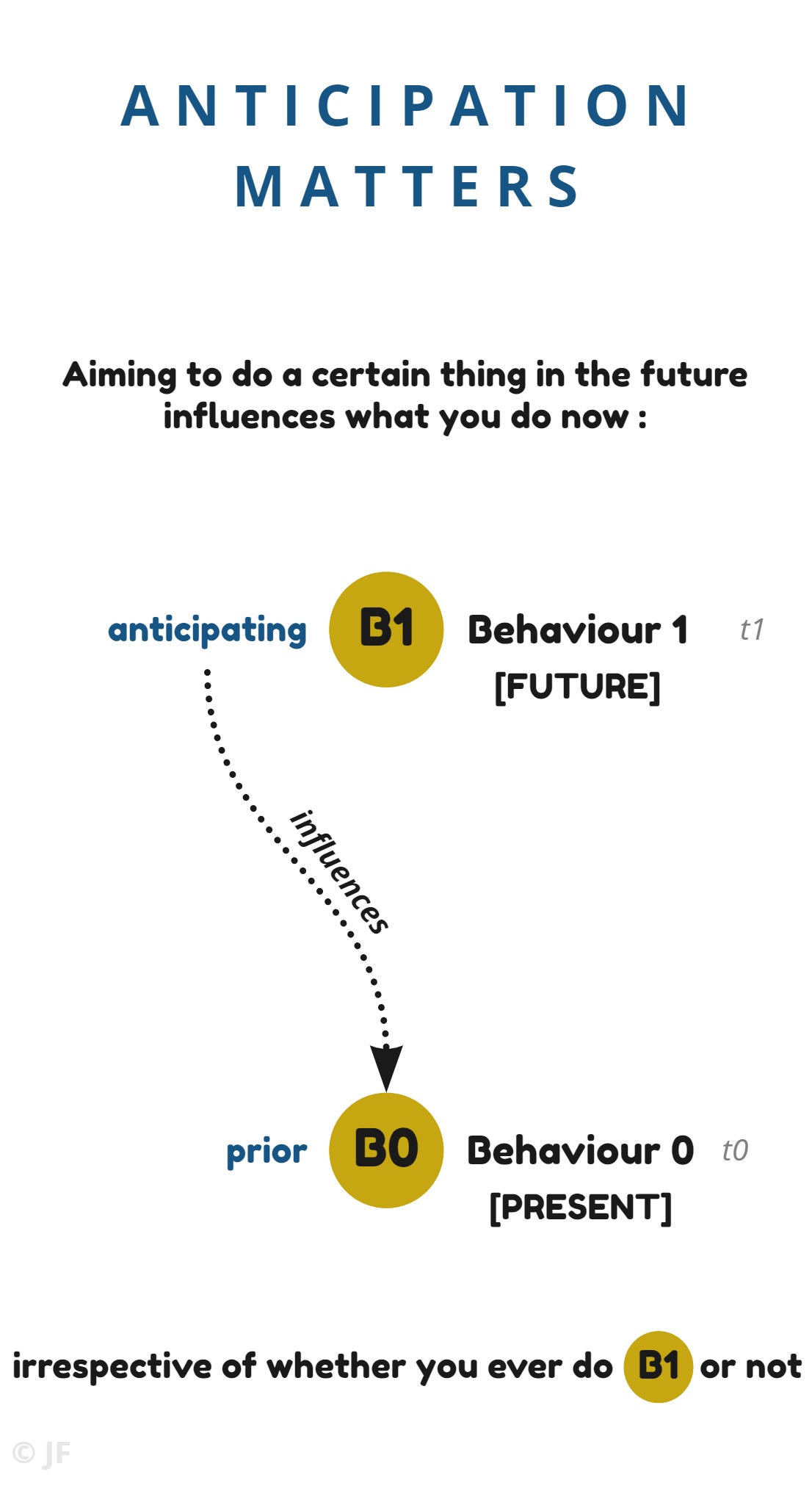
3 Taxonomy
Spillunders can be classified into 2 categories: enhancing and extinguishing.
A spillunder is enhancing when anticipating a behaviour makes it more likely for you to do a certain behaviour now, or when it makes you do more of that behaviour.
Extinguishing spillunders, on the other hand, occur when the opposite happens: anticipating Behaviour 1 decreases the likelihood or quantity of Behaviour 0.
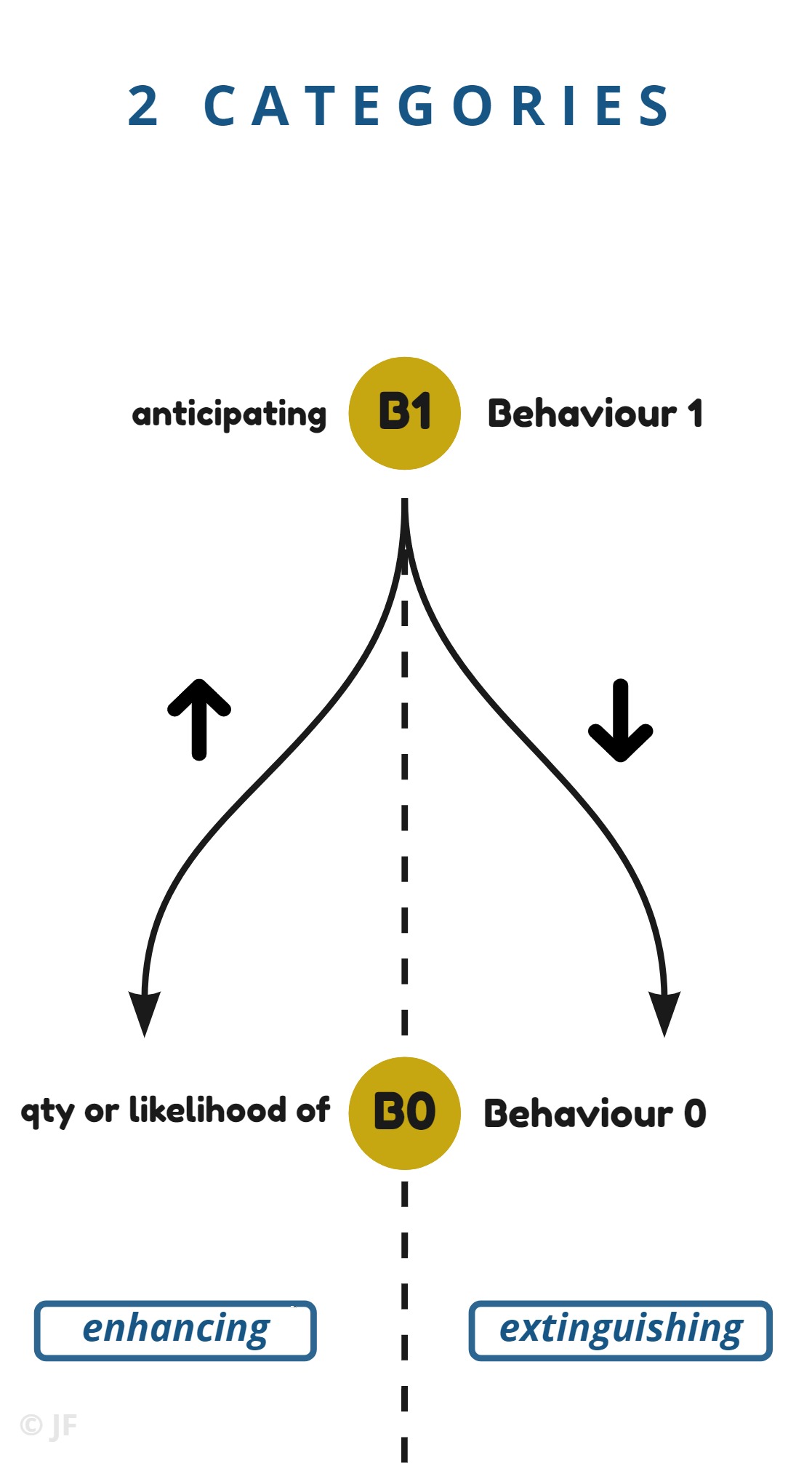
4 Examples
a) enhancing
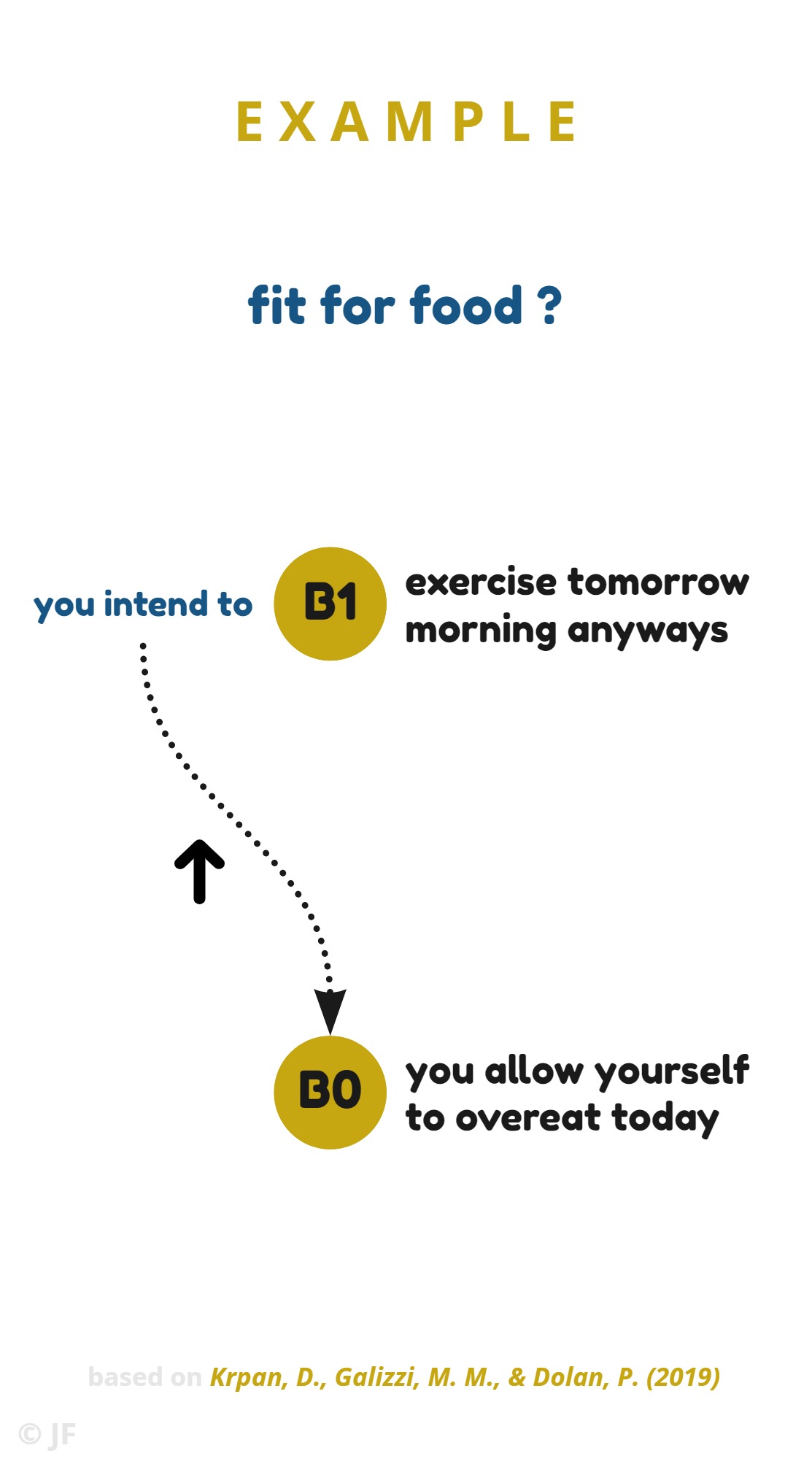
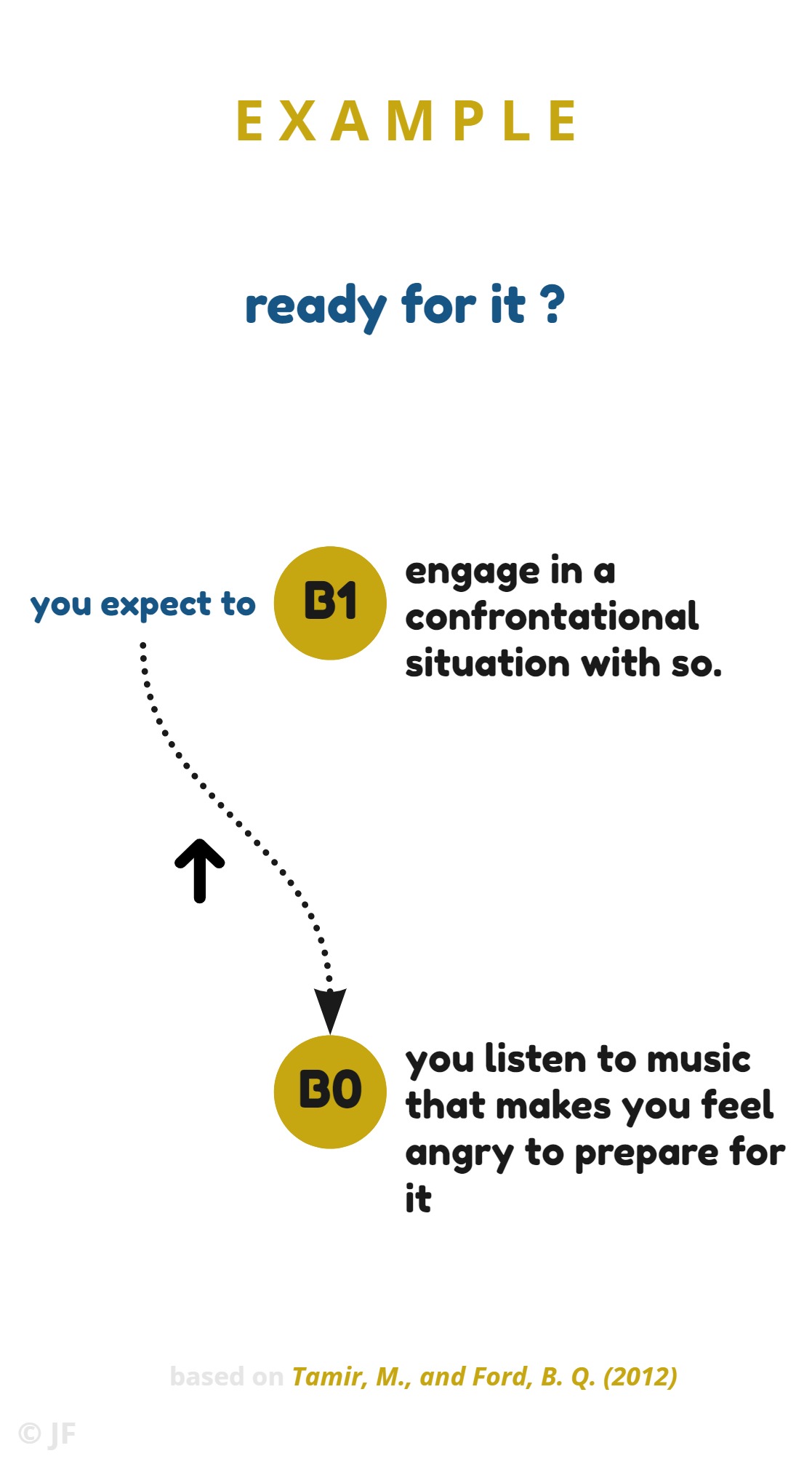
b) extinguishing
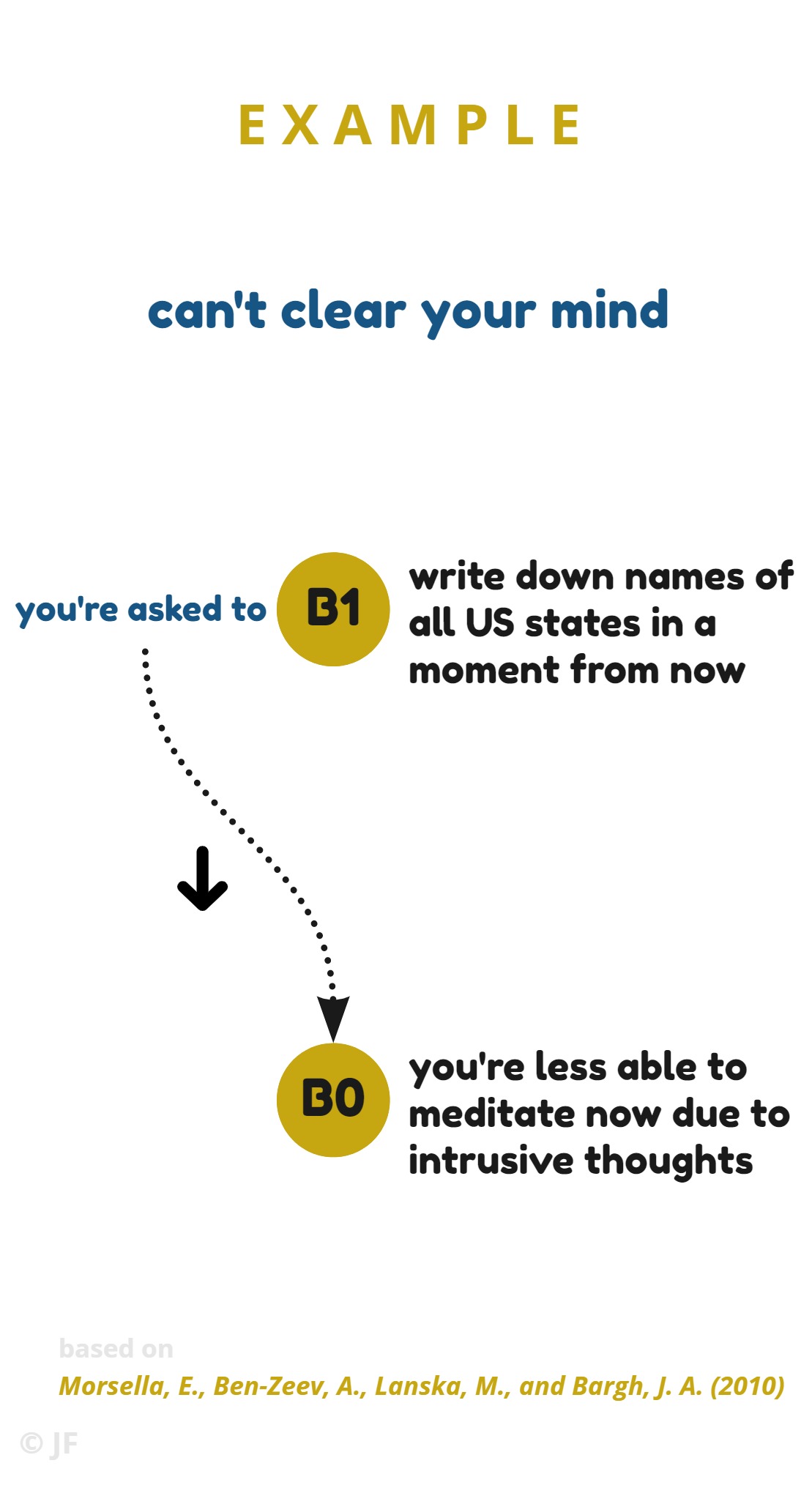
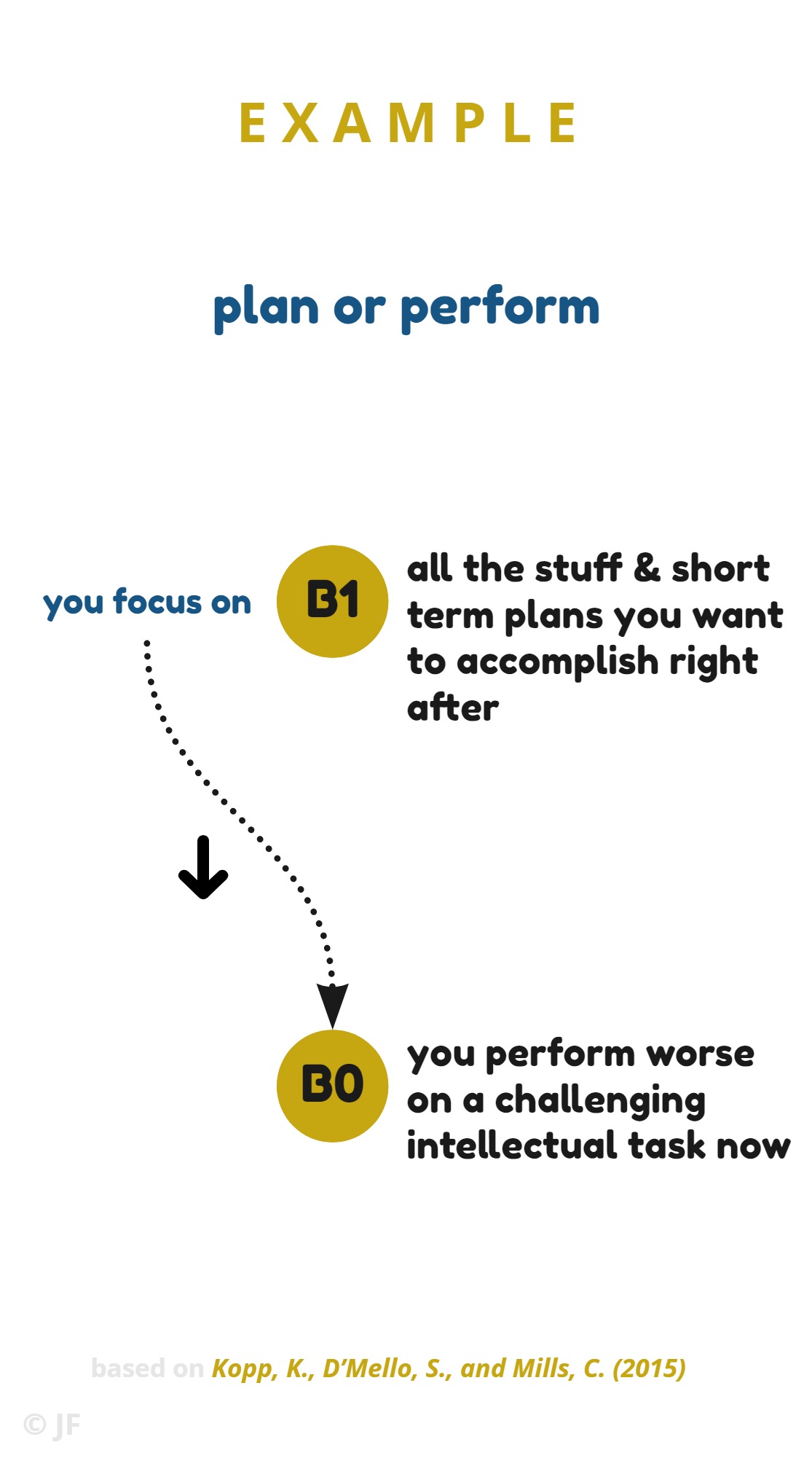
5 Explaining Spillunders
Why do spillunders occur from one bevahiour to a previous one – even where behaviours appear seemingly unrelated?
I will talk you through 3 core psychological and behavioural mechanisms: executive functions, emotion regulation and moral licensing/cleansing.
1. Executive functions
Executive functions are essential for executing any behaviour that is effortful and does not come automatically.
(The core structure of the brain that is activated is the prefrontal cortex).
Among these executive functions is inhibition, which affords “self-control”.
Many things in our daily lives require self-control: from resisting sweet temptations to overcoming habits and persevering on effortful physical and intellectual tasks.
However, executive functions are highly susceptible to situational influences.
Now, if you mentally anticipate a behaviour you want (or need) to undertake in the future, your mood might be affected, you might feel stressed, experience cognitive load or have intrusive thoughts…
And, all these “new” situational factors, in turn, can impair or enhance executive functioning in your current activity (B0), whether you are exercising, trying to eat healthily or performing a difficult intellectual task.
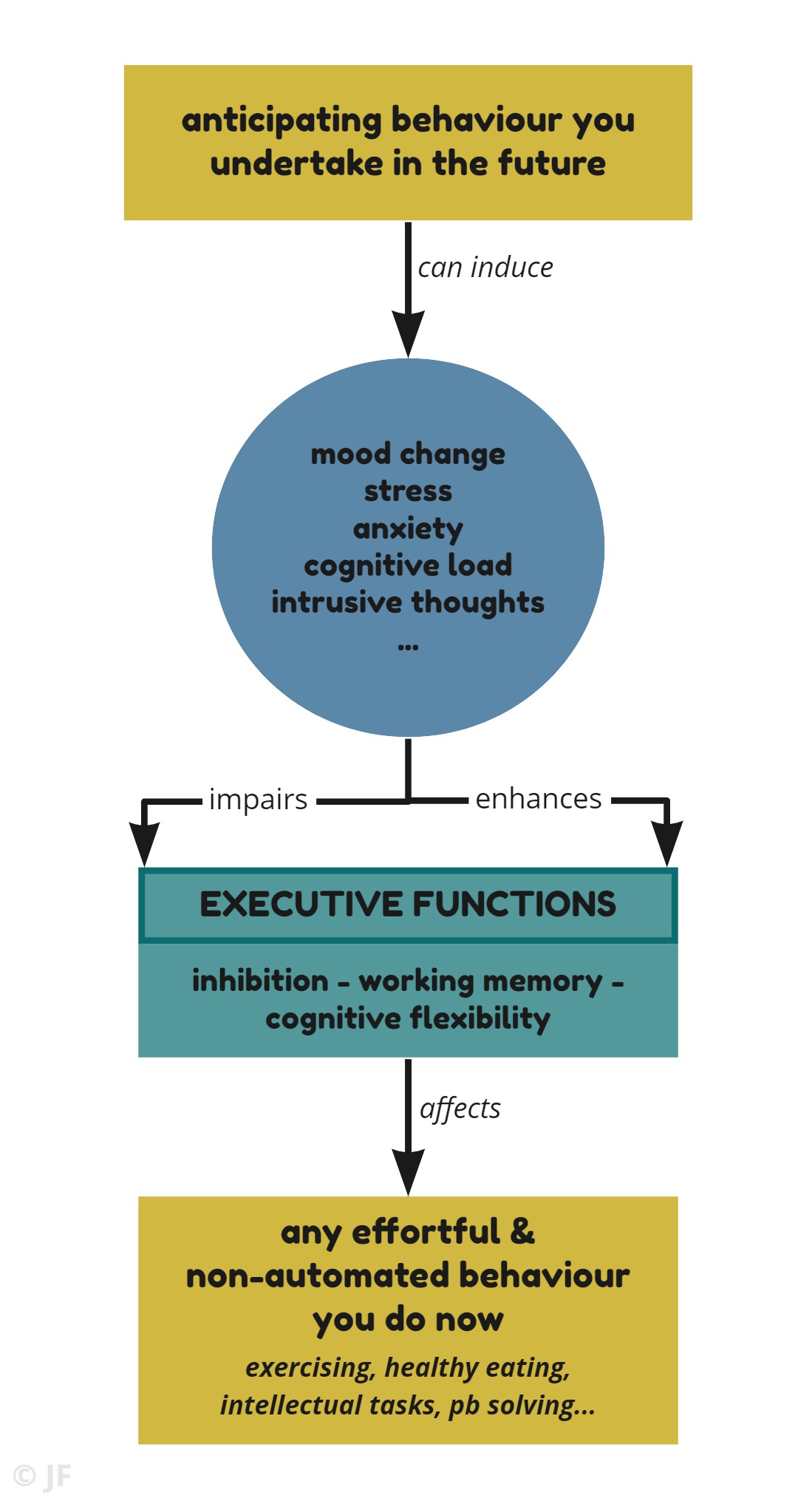
2. Emotion regulation
There are several strategies through which we try to have control over our emotions in everyday life.
For example, approaching or avoiding certain people or situations is one emotion regulation strategy. Actively trying to change a situation to reduce its emotional impact on oneself is another one.
In the context of behavioural spillunder, you might use emotion regulation (even subconsciously) to prepare for a situation that will require or involve an intense emotional state (such as a confrontation or a competition).
In that sense, anticipating an emotional state spills onto what you do at present to reach that state.
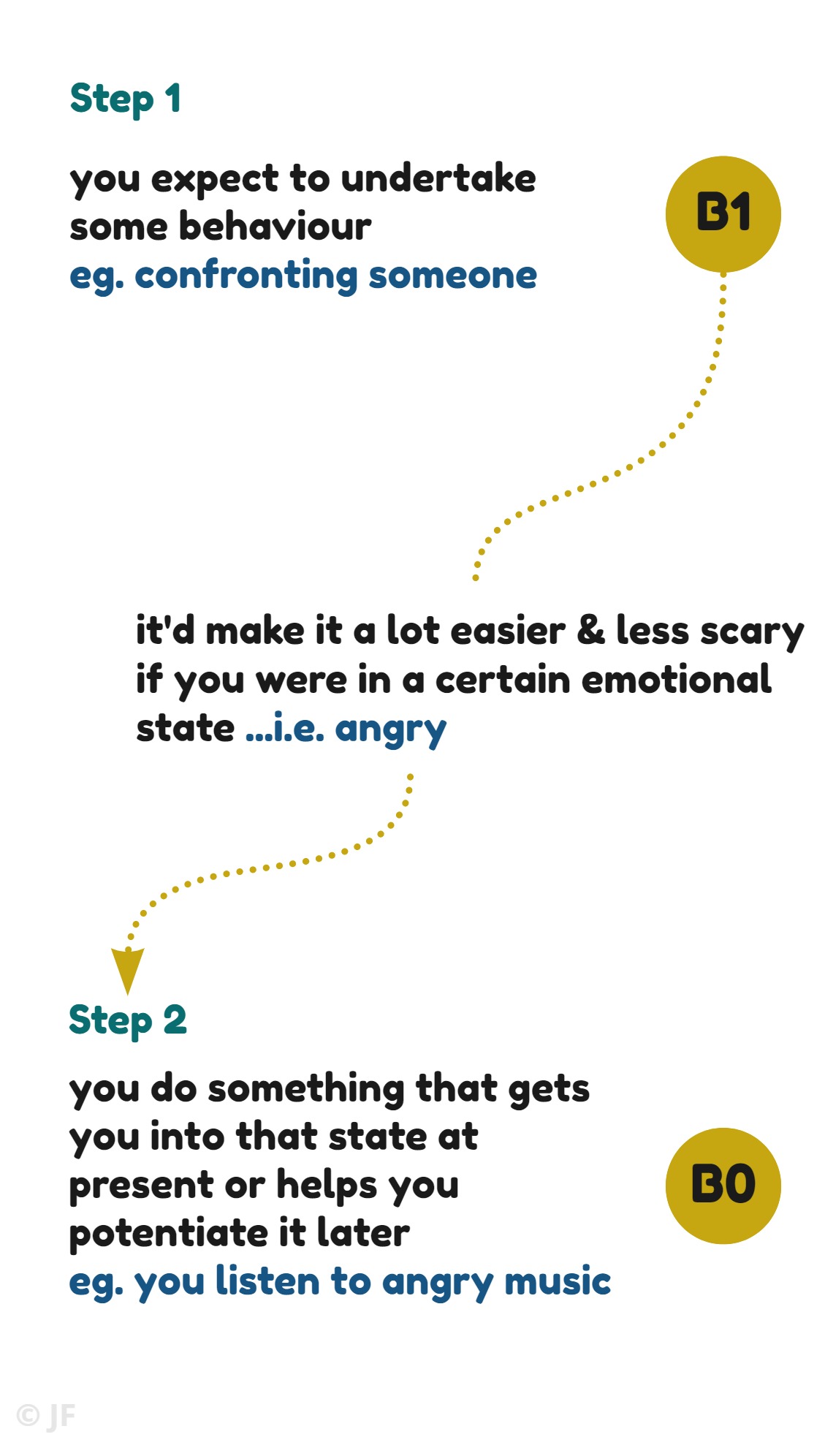
3. Moral licensing & cleansing
As for spillovers, spillunders can also be explained by moral licensing and moral cleansing.
In each case, you anticipate that you’ll either do a moral or an immoral action in the future.
And, this expectation influences the likelihood of behaving morally now.
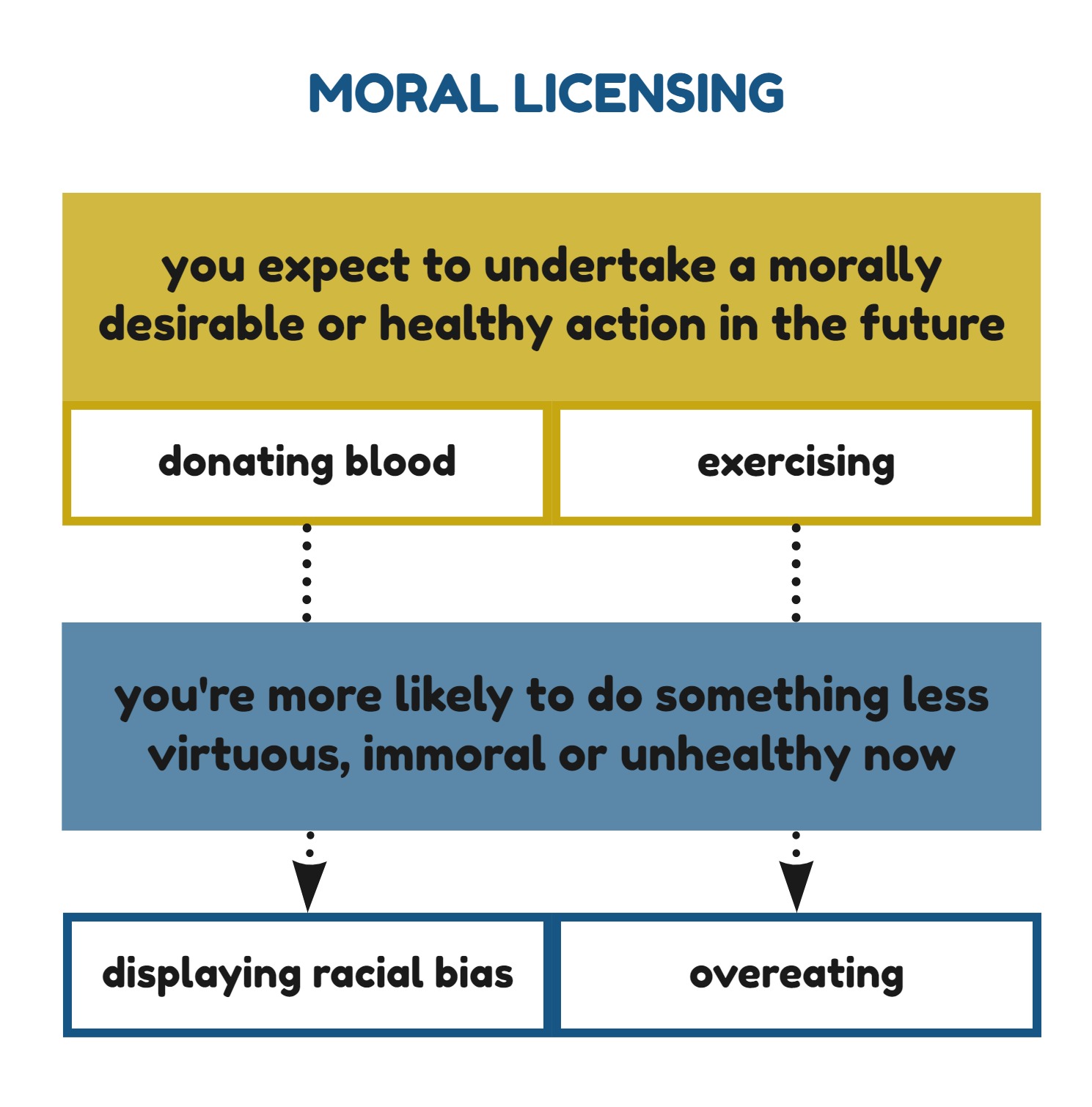
For example, in a study by Cascio and Plant (2015), participants who anticipated performing a moral action in the future (eg. donating blood or participating in a fundraiser), were more likely* to reveal their racial prejudice in the present and to decide against endorsing a Black job candidate for the position of police officer.
*vs. participants who didn’t anticipate moral behaviour (control group)
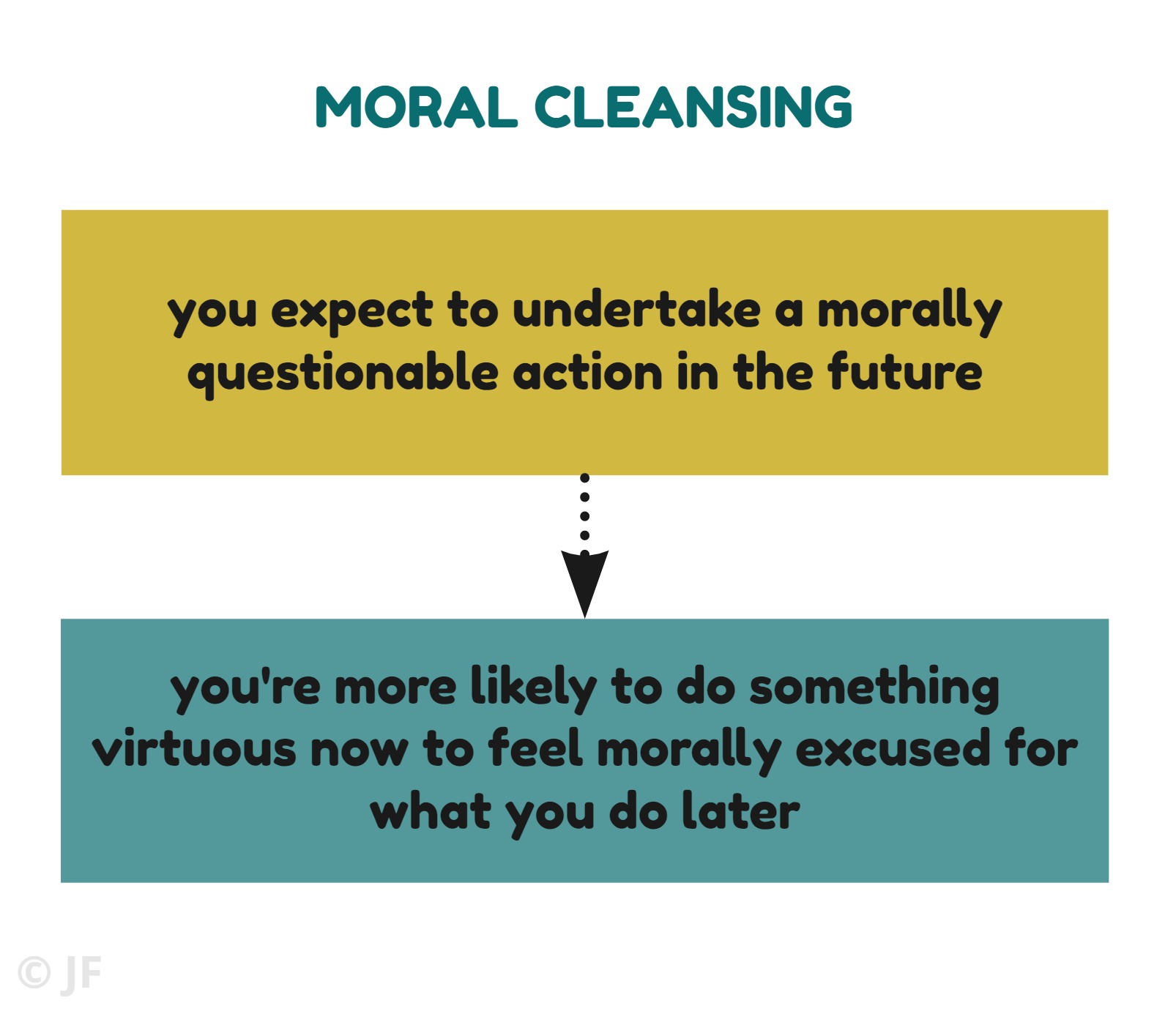
References
Cascio, J., and Plant, E. A. (2015). Prospective moral licensing: does anticipating doing good later allow you to be bad now? J. Exp. Soc. Psychol. 56, 110–116.
Kopp, K., D’Mello, S., and Mills, C. (2015). Influencing the occurrence of mind wandering while reading. Conscious. Cogn. 34, 52–62.
Morsella, E., Ben-Zeev, A., Lanska, M., and Bargh, J. A. (2010). The spontaneous thoughts of the night: how future tasks breed intrusive cognitions. Soc. Cogn. 28, 641–650.
Tamir, M., and Ford, B. Q. (2012). When feeling bad is expected to be good:emotion regulation and outcome expectancies in social conflicts. Emotion 12, 807–816.